On average, each year there are about 10 thousand children examined for autism at the National Children's Hospital.
According to major studies around the world , the rate of autistic children accounts for about 1% of the population. In Vietnam, this number is also predicted to be similar.
Master, Doctor Nguyen Mai Huong, Deputy Head of the Department of Psychiatry, National Children's Hospital, said that in 2018, the National Children's Hospital coordinated with the University of Public Health to conduct a national study to screen children under 6 years old at 7 locations representing regions in Vietnam.
The results showed that the rate of children with autism under 6 years old is about 0.7%. "If we expand the study to children over 6 years old, we think this number will be even higher," Dr. Mai Huong affirmed.
Recently, at the National Children's Hospital, the rate of parents bringing their children for early check-ups, before the age of 2, has been increasing. This shows that when there are only vague signs, parents are worried and take their children for early check-ups to find out the cause of their slow development.
In the 2024 year-end report, the Department of Psychiatry received over 45,000 visits to the General Mental Health Department, of which approximately 20% were for suspected autism. Thus, each year approximately 10,000 children were examined for autism.
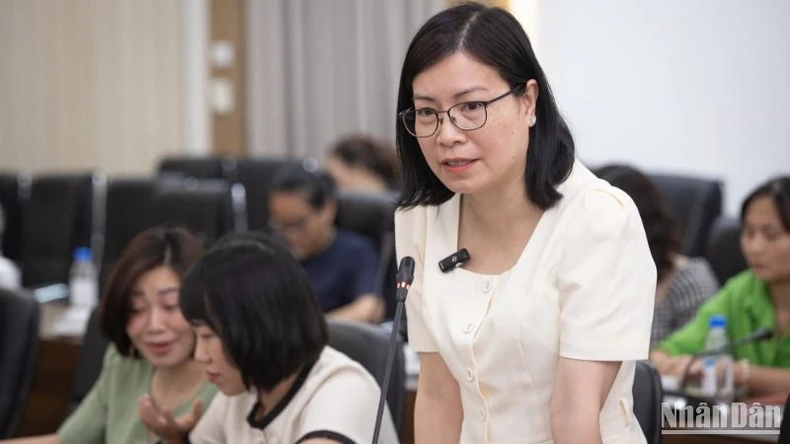 |
Master, Doctor Nguyen Mai Huong, Deputy Head of Psychiatry Department, National Children's Hospital. |
The golden period for intervention for autistic children
According to Dr. Mai Huong, there is currently no cure for autism. Children who are detected early, intervened early, properly, and with enough time, with the cooperation of parents and specialists, the effects of autism on the child's life and function will be reduced, helping the child increase the quality of life, reducing the burden on the family and society.
When children come to see a doctor at a young age, they have more opportunities to participate in early intervention activities, the intervention is more effective, the intervention costs and negative impacts on children, families and society will be reduced.
The golden period for intervention for autistic children is before the age of 4, especially before the age of 3 because this is the stage when the brain is developing. Interventions at this time by experts will promote brain development activities for children.
In addition to intervention at the centers, the role of parents is very important. Parents must be proactive in grasping information, accumulating knowledge and skills, and supporting professionals to accompany them on the journey of intervention for their children.
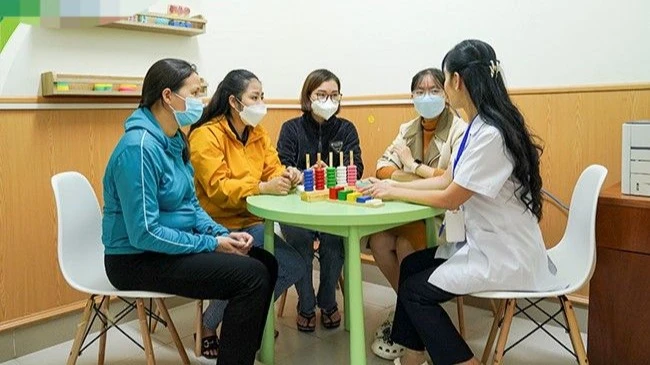 |
Parents need to understand and accompany their autistic children. |
Need to improve the capacity of medical facilities in diagnosing and intervening in autistic children
The Department of Psychiatry, National Children's Hospital is the leading unit in diagnosing autism spectrum disorders. Many parents have to bring their children from remote areas to Hanoi to determine whether their children have autism or not. This is extremely disadvantageous in terms of both time and cost for the family to accompany their child if the child is diagnosed with autism.
Dr. Mai Huong cited a case where parents brought their child from Dien Bien to the National Children's Hospital for examination. To go to the hospital, the parents had to take time off work, take their child on a long journey for a whole day, and incur many related costs in addition to the examination fee. However, after the examination, they learned that their child had autism spectrum disorder, so they returned to their hometown and did not know what to do next. The intervention centers were very far from their area and the cost of this was beyond their ability.
5 warning signs of autism risk:
- 12 months, child does not babble
- 12 months, the child does not know how to point, say bye, clap hands, or shake head
- 16 months, child cannot say single words
- 24 months, child cannot say 2 words
- Children lose language or social skills they had at any age.
Therefore, in addition to actively communicating health education to raise public awareness of early detection of autism, the National Children's Hospital also transfers technology to lower-level medical facilities.
The health sector has made efforts to have satellite hospital projects to transfer technology to lower-level hospitals, to improve the capacity of doctors at the provincial level to examine, evaluate, and diagnose children in their own localities.
Dr. Mai Huong suggested that we need to have policies and services to meet the needs of autistic children locally, for example, having more units capable of examining and screening children with autism spectrum disorders, having local intervention centers, and having a team of specialized and well-trained teachers so that children do not need to travel far.
It is also important to raise public awareness of autism, reduce stigma, and work together to help autistic children and their families integrate into the community.
Source: https://nhandan.vn/ty-le-tre-den-kham-vi-tu-ky-gia-tang-post868691.html




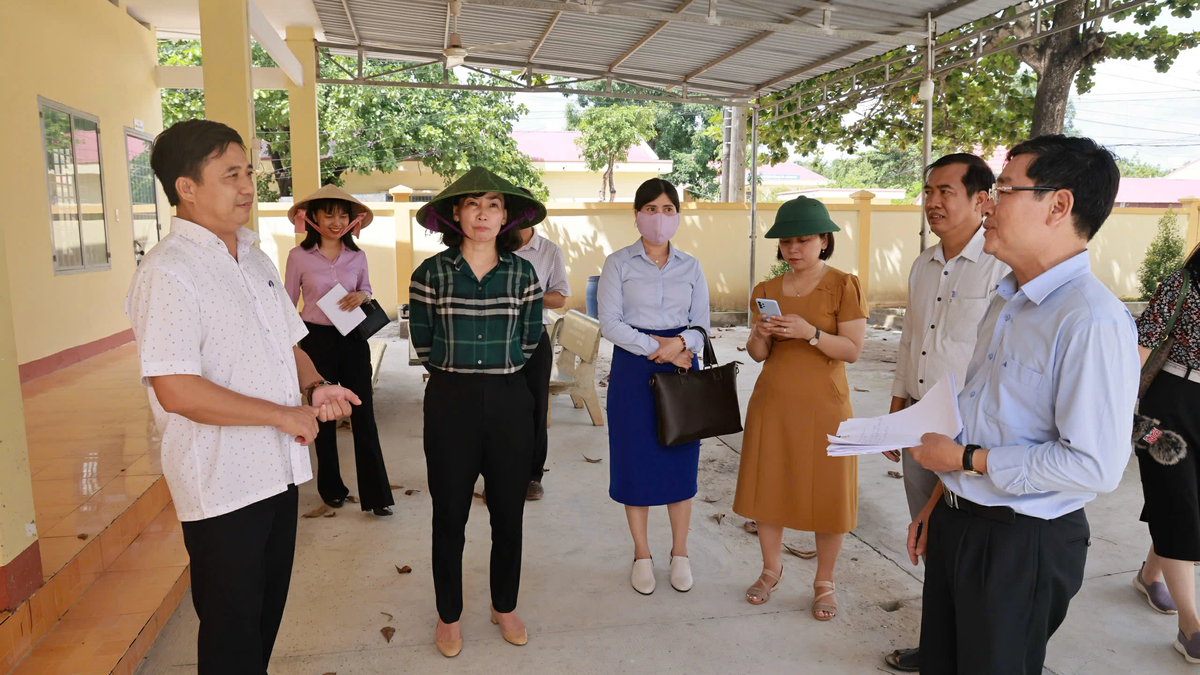

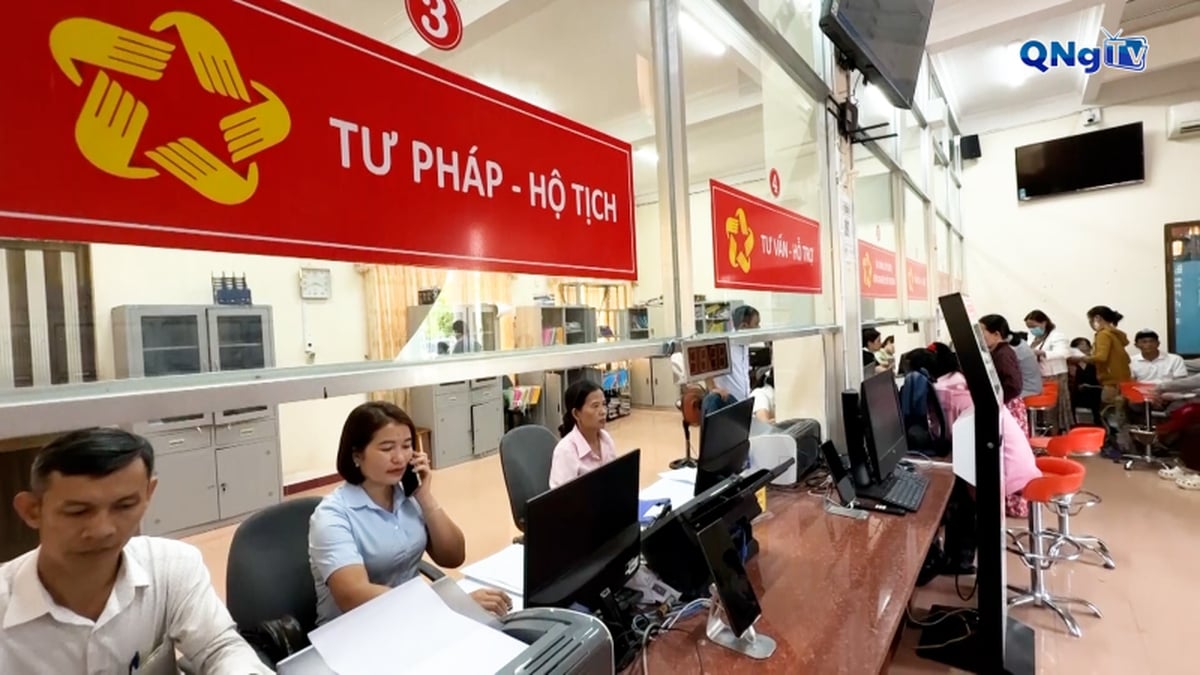





















































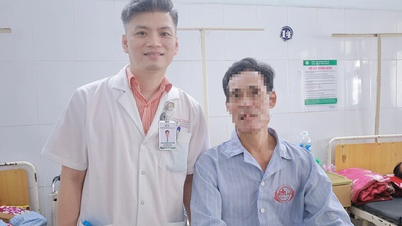







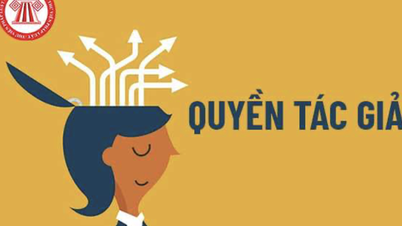

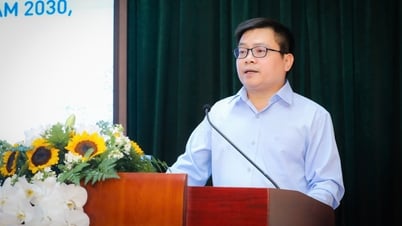



























Comment (0)